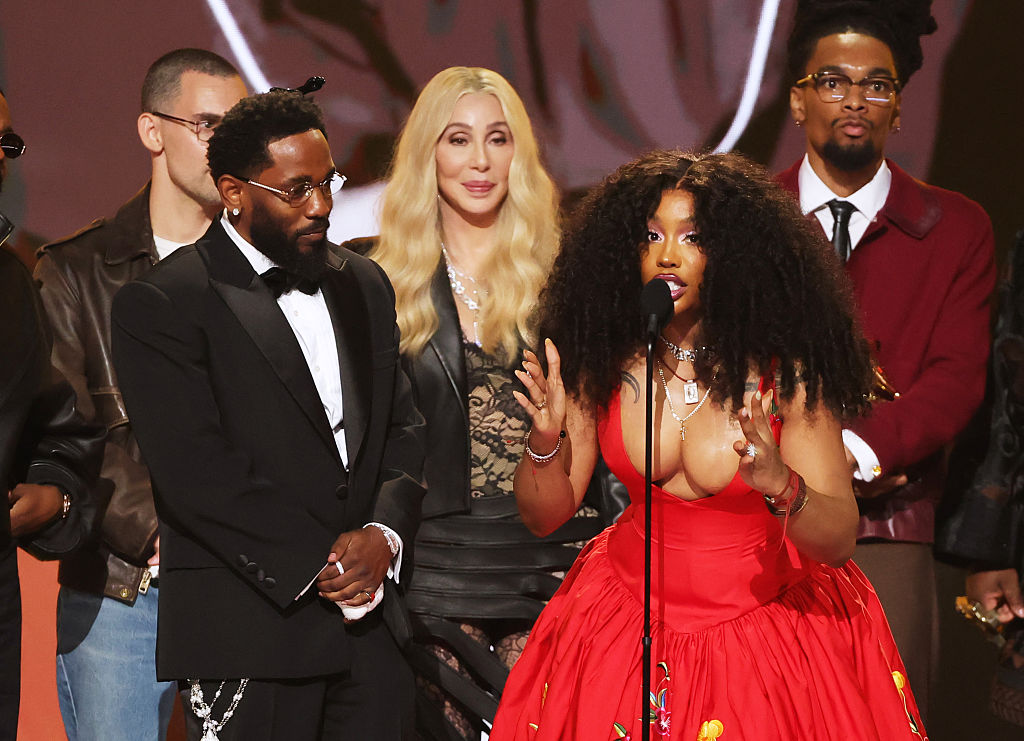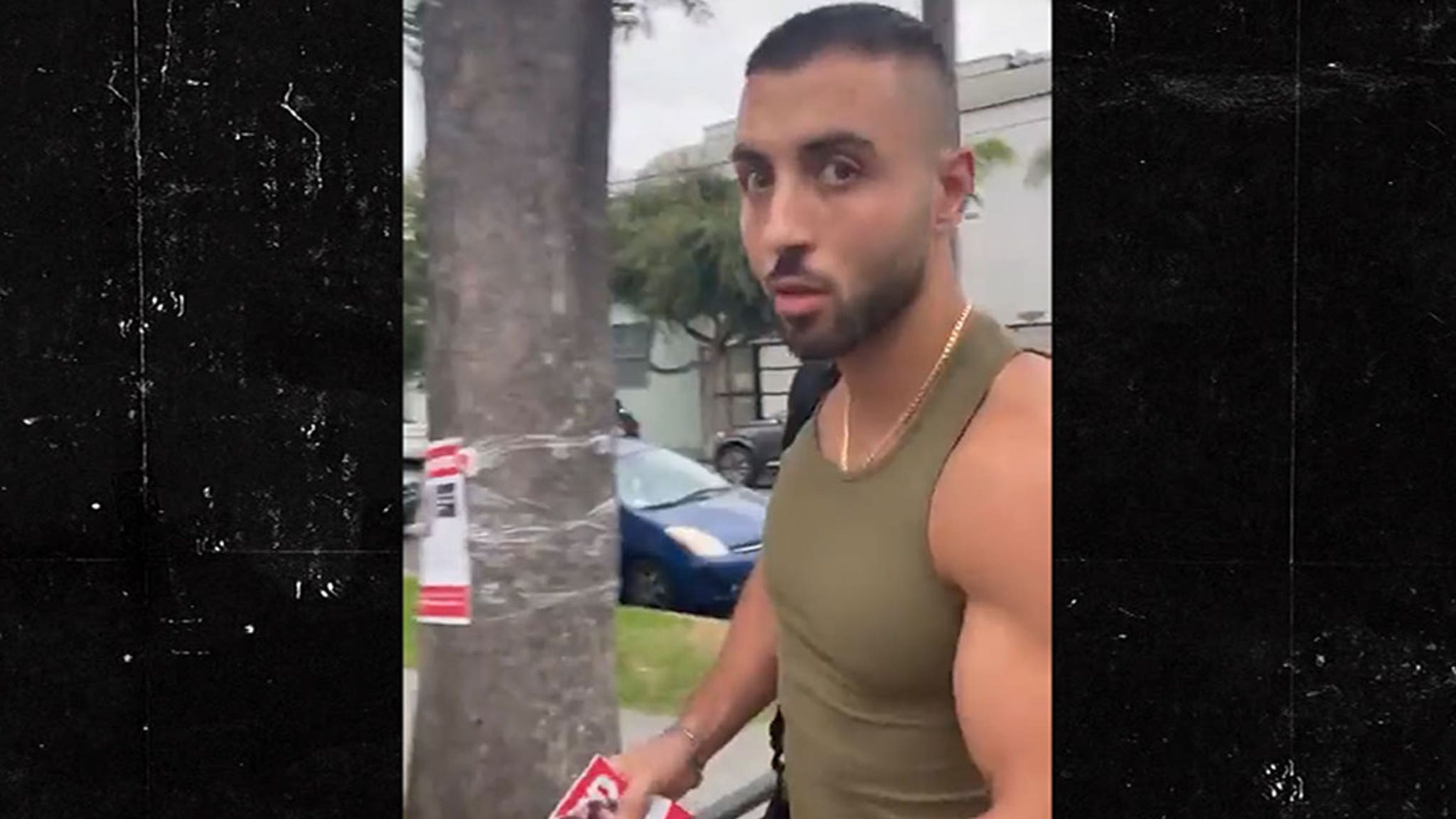Hasan Minhaj has mostly stayed quiet about a September New Yorker profile that alleges he fabricated or exaggerated elements of stories he tells in his stand-up comedy, a bombshell story that raised questions about his public persona.
Although he gave a statement Sept. 15 after the article’s publication that said, in part, “all my standup stories are based on events that happened to me,” Minhaj hasn’t responded in detail — until now, and in, as the comedian puts it, “the most Hasan Minhaj way possible: a 20-minute deep dive with graphics and excessive hand motions.”
“There were omissions and factual errors in The New Yorker article that misrepresented my life story, so I wanted to give people the context and materials I provided The New Yorker with full transparency,” Minhaj said in a statement to The Hollywood Reporter.
In the video — which you can see in full below — Minhaj provides more context on three stories from his stand-up act that drew scrutiny in The New Yorker: being rejected for prom because of racism, his run-ins with undercover law enforcement surveilling the Muslim community in his hometown, and an anthrax scare he had at his home.
“With everything that’s happening in the world, I’m aware even talking about this now feels so trivial,” Minhaj says in the video. “But being accused of ‘faking racism’ is not trivial. It’s very serious, and it demands an explanation.
“To everyone who read that article,” he continues, “I want to answer the biggest question that’s probably on your mind: Is Hasan Minhaj secretly a psycho? Underneath all that pomp, is Hasan Minhaj just a con artist who uses fake racism and Islamophobia to advance his career? Because after reading that article, I would also think that.”
He says he took “a beat” before responding to the story in detail, both because of the state of the world at the moment and because he’s been “processing” the criticism that has come his way in the wake of the article: “I just want to say to anyone who felt betrayed or hurt by my stand-up, I am sorry. I made artistic choices to express myself and drive home larger issues affecting me and my community, and I feel horrible that I let people down.
“The reason I feel horrible is because I’m not a psycho. But this New Yorker article definitely made me look like one. It was so needlessly misleading, not just about my stand-up, but also about me as a person. The truth is, racism, FBI surveillance and the threats to my family happened. And I said this on the record.”
In response to the video, The New Yorker issued the following statement to THR: “Hasan Minhaj confirms in this video that he selectively presents information and embellishes to make a point: exactly what we reported. Our piece, which includes Minhaj’s perspective at length, was carefully reported and fact-checked. It is based on interviews with more than twenty people, including former Patriot Act and Daily Show staffers; members of Minhaj’s security team; and people who have been the subject of his standup work, including the former F.B.I. informant “Brother Eric” and the woman at the center of his prom-rejection story. We stand by our story.”
In Minhaj’s Netflix special Homecoming King, he tells a story of asking a white girl (whom he gives the pseudonym “Bethany Reed”) to prom, only to show up at her house and be told by her mother that Bethany won’t go with him because her family doesn’t want their daughter in pictures with “a brown boy.”
“Bethany’s mom really did say that — it was just a few days before prom,” he says. “I created the doorstep scene to drop the audience into the feeling of that moment, which I told the reporter.” He then plays an audio clip of part of his conversation with writer Clare Malone discussing the scene.
The video also shows emails and texts between Minhaj and Bethany, which he says he provided to the magazine, showing Bethany thanking him for protecting her and her family — the article says the story in Homecoming King led to her being doxxed — and at least indirectly acknowledging that her parents turned Minhaj away from being Bethany’s prom date.
“My team and I repeatedly tried to give them the emails you just saw. We confirmed the emails were sent to the reporter and their fact-checker before the article came out,” Minhaj says. “They knew my rejection was due to race. I confirmed it on the record and provided corroborating evidence. And yet they misled readers by excluding all of that and splicing two different quotes together to leave you thinking that I made up a racist incident.”
Regarding the other stories from his stand-up, Minhaj admits (and has never denied) that he embellished the stories about being harassed by law enforcement that was surveilling the mosque he and his family attended and that he took his daughter to a hospital after she was exposed to what turned out to be fake anthrax powder in a letter sent to their apartment.
He apologizes in the video for commingling fact and fiction in both instances, but says that his stand-up work — as opposed to his time on Comedy Central’s The Daily Show or Netflix’s Patriot Act, which did employ fact-checkers — allows for more artistic license.
“I thought I had two different expectations built into my work: my work as a storytelling comedian and my work as a political comedian, where facts always come first,” he says. “That is why the fact-checking on Patriot Act was extremely rigorous. The fact-checking in my congressional testimony, deeply rigorous.… But in my work as a storytelling comedian, I assumed the lines between truth and fiction were allowed to be a bit more blurry.
“And I totally get why a journalist would be interested where that line sits,” he continues. “I just wish the reporter had been more interested in their own premise. Someone genuinely curious about truth in stand-up wouldn’t just fact-check my specials. They would fact-check a bunch of specials. They would establish a control group, a baseline, to see how far outside the bounds I was in relation to others. They wouldn’t just cherry-pick a few stories.”
Minhaj’s video closes with him playing audio of a longer version of the line that closes the New Yorker story — “he told me, ‘the emotional truth is first. The factual truth is secondary’” — and says he lobbied to have more context included. He says in part on the recording, “With [The Daily Show or Patriot Act], the truth comes first. Comedy sometimes comes second to make the infotainment, the sugar on the medicine. In this [stand-up], the emotional truth is first, the factual truth is secondary.”
“The guy in this article is a proper fucking psycho, but I now hope you feel like the real me is not,” Minhaj concludes. “I’m just a guy with IBS and low sperm motility. Again, there is much more important news happening in the world right now that needs your attention. So I appreciate you watching, I take the note, and I hope to see you at the next show.”
Oct. 26, 8:38 a.m.: Updated with a statement from The New Yorker in response to the video.







